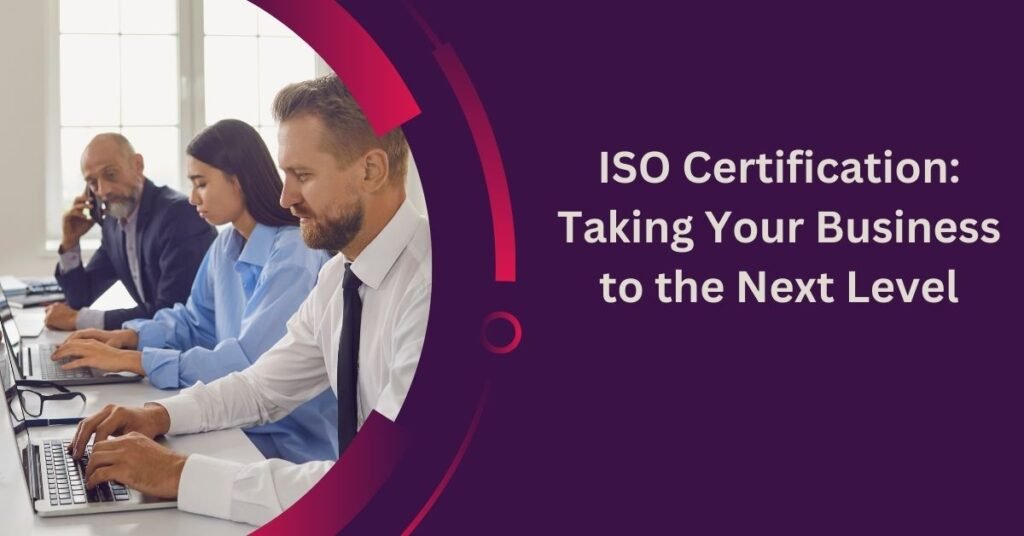In today’s competitive market, businesses must continuously strive for excellence to stand out. One of the most effective ways to demonstrate quality, efficiency, and reliability is through ISO Certification. Whether you’re a small business or a multinational corporation, obtaining an ISO certification can enhance your credibility, streamline your processes, and open doors to new business opportunities.
What is ISO Certification?
ISO (International Organization for Standardization) is an independent, non-governmental body that develops and publishes international standards for businesses across various industries. These standards ensure consistency, quality, safety, and efficiency in products and services worldwide. ISO certification is the process through which a company proves that it complies with a specific ISO standard.
Types of ISO Certifications
There are several ISO certifications, each catering to different aspects of business operations. Some of the most widely recognized include:
-
ISO 9001: Quality Management System (QMS)
- Ensures that a company meets customer and regulatory requirements while improving overall efficiency.
- Helps in enhancing customer satisfaction and operational consistency.
-
ISO 14001: Environmental Management System (EMS)
- Focuses on sustainable business practices and minimizing environmental impact.
- Aids in regulatory compliance and reduces waste and energy consumption.
-
ISO 45001: Occupational Health and Safety Management System (OHSMS)
- Helps organizations maintain a safe and healthy workplace.
- Reduces workplace hazards and improves employee well-being.
-
ISO 27001: Information Security Management System (ISMS)
- Ensures data protection and cybersecurity.
- Helps businesses manage risks related to information security and confidentiality.
-
ISO 22000: Food Safety Management System (FSMS)
- Essential for food manufacturers, ensuring food safety at all levels of production.
- Builds consumer trust by preventing foodborne hazards.
-
ISO 50001: Energy Management System (EnMS)
- Helps businesses optimize energy use and reduce costs.
- Contributes to sustainability goals and regulatory compliance.
Why ISO Certification Matters
ISO certification is more than just a formal recognition; it provides several key benefits that help businesses grow and succeed.
1. Improves Credibility and Reputation
- ISO certification demonstrates that a company meets international standards, making it more attractive to customers and business partners.
- Enhances brand image and trust in the marketplace.
2. Increases Efficiency and Productivity
- Helps businesses streamline their operations and eliminate inefficiencies.
- Establishes well-defined processes, reducing errors and improving workflow.
3. Enhances Customer Satisfaction
- ISO-certified companies focus on quality and continuous improvement.
- Better product and service quality lead to increased customer loyalty.
4. Expands Market Opportunities
- Many global clients and government contracts require ISO certification as a prerequisite.
- Helps businesses enter new markets and gain a competitive edge.
5. Ensures Regulatory Compliance
- ISO standards help companies comply with legal and regulatory requirements.
- Reduces the risk of legal issues and fines.
6. Improves Risk Management
- Helps businesses identify and mitigate risks proactively.
- Ensures preparedness for emergencies and operational challenges.
Steps to Get ISO Certified
The process of obtaining ISO certification involves several key steps. Here’s how a company can achieve certification:
- Visit the Website: Go to the ISO certification website to start the process.
- Choose Your ISO Standard: Choose your business-based certificate( ISO 9001, ISO 14001, ISO27001 etc)
- Fill Out the Form: Complete the online form with basic details
- Pay the Fee: Complete the payment for the required fee.
- Verification: An executive will check your payment and process your application.
- Confirm Your Certificate: Discuss with the client and issue the certificate.
- Receive Your Certificate: After everything is done, your ISO certificate will be emailed to you.
Common Challenges in ISO Certification and How to Overcome Them
While ISO certification offers significant benefits, businesses may face challenges in the process. Here’s how to tackle them:
- Lack of Awareness and Training
- Solution: Conduct regular ISO training sessions for employees.
- Resistance to Change
- Solution: Involve employees in decision-making and highlight the benefits of ISO compliance.
- Complex Documentation Requirements
- Solution: Use ISO templates and professional guidance to simplify documentation.
- High Implementation Costs
- Solution: View ISO certification as a long-term investment with cost-saving benefits in efficiency and compliance.
- Maintaining Compliance Over Time
- Solution: Appoint an ISO compliance officer and conduct regular audits to ensure adherence.
Future of ISO Certification
As industries evolve, ISO standards continue to adapt to new challenges and technologies. Some future trends include:
- Integration with Digital Transformation – More businesses are adopting ISO standards for data security, AI, and automation.
- Increased Focus on Sustainability – Standards like ISO 14001 and ISO 50001 are gaining importance as businesses prioritize environmental responsibility.
- Remote Audits – Digitalization is making it possible for companies to undergo remote audits, reducing costs and improving accessibility.
Note: You can also Apply for ISO 9001 Certification from our website
Conclusion
ISO certification is a powerful tool for businesses looking to improve quality, efficiency, and credibility. It helps organizations comply with international standards, gain customer trust, and expand market opportunities. While the certification process requires commitment and effort, the long-term benefits far outweigh the challenges. If you’re ready to take your business to the next level, investing in ISO certification is a step in the right direction.











































